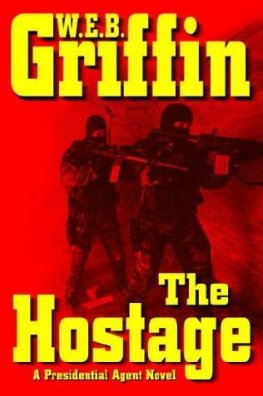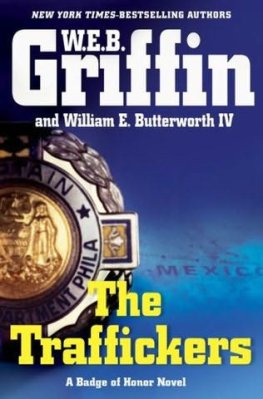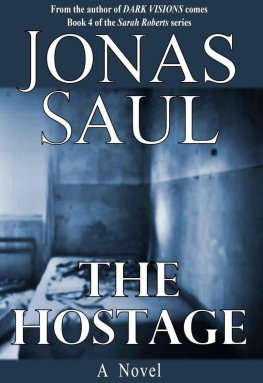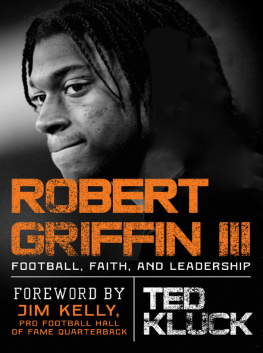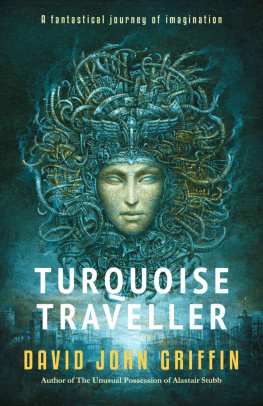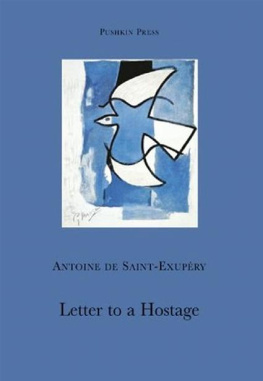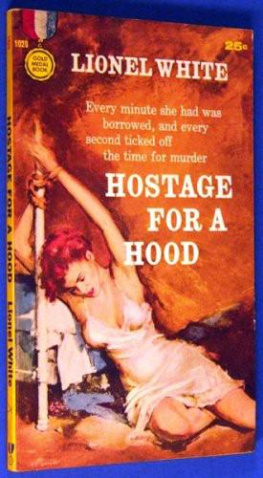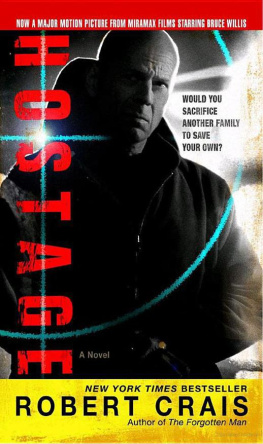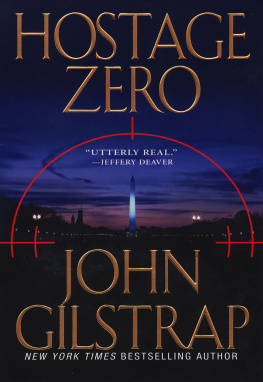W. Griffin - The Hostage
Here you can read online W. Griffin - The Hostage full text of the book (entire story) in english for free. Download pdf and epub, get meaning, cover and reviews about this ebook. genre: Detective and thriller. Description of the work, (preface) as well as reviews are available. Best literature library LitArk.com created for fans of good reading and offers a wide selection of genres:
Romance novel
Science fiction
Adventure
Detective
Science
History
Home and family
Prose
Art
Politics
Computer
Non-fiction
Religion
Business
Children
Humor
Choose a favorite category and find really read worthwhile books. Enjoy immersion in the world of imagination, feel the emotions of the characters or learn something new for yourself, make an fascinating discovery.
- Book:The Hostage
- Author:
- Genre:
- Rating:3 / 5
- Favourites:Add to favourites
- Your mark:
- 60
- 1
- 2
- 3
- 4
- 5
The Hostage: summary, description and annotation
We offer to read an annotation, description, summary or preface (depends on what the author of the book "The Hostage" wrote himself). If you haven't found the necessary information about the book — write in the comments, we will try to find it.
The Hostage — read online for free the complete book (whole text) full work
Below is the text of the book, divided by pages. System saving the place of the last page read, allows you to conveniently read the book "The Hostage" online for free, without having to search again every time where you left off. Put a bookmark, and you can go to the page where you finished reading at any time.
Font size:
Interval:
Bookmark:
W. E. B. Griffin
The Hostage
Flughafen Schwechat Vienna, Austria 1630 12 July 2005
As an American, Jean-Paul Lorimer was always annoyed or embarrassed, or both, every time he arrived at Vienna's international airport. The first thing one saw when entering the terminal was a Starbucks kiosk.
The arrogance of Americans to sell coffee in Vienna! With such a lurid red neon sign!
Dr. Jean-Paul Lorimer, Ph.D.-a very black man of forty-six who was somewhat squat, completely bald, spoke in a nasal tone, and wore the latest in European fashion, including tiny black-framed glasses and Italian loafers in which he more waddled than walked-had written his doctoral thesis on Central European history. He knew there had been coffee in Europe as early as 1600.
Dr. Lorimer also knew that after the siege of Vienna in 1683, the fleeing Turkish Army left behind bags of "black fodder." Franz Georg Kolschitzky, a Viennese who had lived in Turkey, recognized it as coffee. Kolschitzky promptly opened the first coffeehouse. It offered free newspapers for his customers to read while they were drinking his coffee, which he refined by straining out the grounds and adding milk and sugar.
It was an immediate success, and coffee almost immediately became a part of cultured society in the Austro-Hungarian Empire. And spread from there around the world.
Dr. Lorimer waddled past the line of travelers at the kiosk, shaking his head in disgust. And now the Americans are bringing it, as if they invented it, like Coca-Cola, to the world? Spreading American culture? Good God! Outrageous!
Dr. Jean-Paul Lorimer no longer thought of himself as an American. For the past twenty-two years, he had been a career professional employee of the United Nations, with the personal rank of minister for the past five.
His title was chief, European directorate of interagency coordination. It had its headquarters in Paris, and thus he had lived there nearly a quarter-century. He had purchased an apartment several years ago on Rue Monsieur in the VII Arrondissement and planned-when the time was right-to buy a little house somewhere on the Cote d'Azur. He hadn't even considered, until recently, ever returning to the United States to live.
Dr. Lorimer's blue, gold-stamped United Nations diplomatic passport saw him waved quickly past the immigration officer on duty.
He got in the taxi line, watched as the driver put his small, take-aboard suitcase into the trunk of a Mercedes, got in the back and told the driver, in German, to take him to an address on Cobenzlgasse.
Lorimer had mixed feelings, most of them bad, about Vienna, starting with the fact that it was difficult to get here from Paris by air. There was no direct service. One had to go to either London or Brussels first to catch a plane. Today, because he had to get here as quickly as possible, he'd come via London. An extra hour and a half of travel time that got him here two hours earlier than going through Brussels would have.
There was the train, of course, The Mozart, but that took forever. Whenever he could, Lorimer dispatched one of his people to deal with things in Vienna.
It was a beautiful city, of course. Lorimer thought of it as the capital city of a nonexistent empire. But it was very expensive-not that that mattered to him anymore-and there was a certain racist ambience. There was practically none of that in Paris, which was one of the reasons Lorimer loved France generally and Paris in particular.
He changed his line of thought from the unpleasant to the pleasant. While there was nothing at all wrong with the women in Paris, a little variety was always pleasant. You could have a buxom blond from Poland or Russia here in Vienna, and that wasn't always the case in Paris.
Jean-Paul Lorimer had never married. When he'd been working his way up, there just hadn't been the time or the money, and when he reached a position where he could afford to marry, there still hadn't been the time.
There had been a film about ten years ago in which the actor Michael Caine had played a senior diplomat who similarly simply didn't have the time to take a wife, and had found his sexual release with top-notch hookers. Jean-Paul reluctantly had identified with Caine's character.
The apartment Lorimer was going to was the Viennese pied-a-terre of Henri Douchon, a Lebanese business associate. Henri, as Lorimer, was of Negroid ancestry-with some Arab, of course, but a black-skinned man, taller and more slender-who also had never married and who enjoyed buxom blond women.
Henri also liked lithe blond young men-that sort of thing was common in the Middle East-but he sensed that Jean-Paul was made uncomfortable in that ambience, and ran them off from the apartment when Jean-Paul was in town, replacing them with the buxom blond Poles or whatever they both liked. Sometimes four or even six of them.
I might as well enjoy myself; God only knows what will happen tomorrow. There was no response to the doorbell of the apartment when Jean-Paul rang it.
Henri had not answered his phone, either, when Jean-Paul called that morning from Paris to tell him he was coming. He had called from one of the directorate's phones-not his-so the call couldn't be traced to him, and he hadn't left a message on the answering machine, either, for the same reason.
But he knew Henri was in town because when he was not, he unplugged his telephone, which caused the number to "ring" forever without activating the answering machine.
Jean-Paul waited exactly ninety seconds-timing it with his Omega chronometer as he looked back onto Cobenzlgasse, the cobblestone street that he knew led up the hill to the position where Field Marshal Radetsky had his headquarters when the Turks were at the gates of Vienna-before putting his key in the lock.
There was no telling what Henri might be doing, and might be unwilling to immediately interrupt. It was simply good manners to give him ninety seconds.
When he pushed the door open, he could hear music-Bartok, Jean-Paul decided-which suggested Henri was at home.
"Henri," he called. "C'est moi, Jean-Paul!"
There was no answer.
As he walked into the apartment, there was an odor he could not immediately identify. The door from the sitting room to Henri's bedroom was open. The bed was mussed but empty.
Jean-Paul found Henri in the small office, which Henri somewhat vainly called the study.
He was sitting in the leather-upholstered, high-back desk chair. His arms were tied to the arms with leather belts. He was naked. His throat had been cut-cut through almost to the point of decapitation.
His hairy, somewhat flabby chest was blood-soaked, and blood had run down from his mouth over his chin.
There was a bloody kitchen knife on the desk, and a bloody pair of pliers. Jean-Paul was made uncomfortable by the sight, of course, but he was never anywhere close to panic or nausea or anything like that.
He had spent a good deal of time, as he worked his way up in the United Nations, in places like the Congo, and had grown accustomed to the sight and smell of mutilated bodies.
He looked again at the body and at the desk and concluded that before they'd cut his throat, they had torn out two fingernails and then-probably later-half a dozen of his teeth. The torso and upper thighs had also been slashed in many places, probably with the knife.
I knew something like this would probably happen, but not this soon. I thought at the minimum we would have another two weeks or so.
Did anyone see me come in?
No.
I gave the cabdriver the address of a house six up Cobenzlgasse from this one, and made sure that he saw me walking up the walk to it before he drove off.
Is there anything incriminating in the apartment?
Probably after what they did to him, there is nothing of interest or value left.
Font size:
Interval:
Bookmark:
Similar books «The Hostage»
Look at similar books to The Hostage. We have selected literature similar in name and meaning in the hope of providing readers with more options to find new, interesting, not yet read works.
Discussion, reviews of the book The Hostage and just readers' own opinions. Leave your comments, write what you think about the work, its meaning or the main characters. Specify what exactly you liked and what you didn't like, and why you think so.

